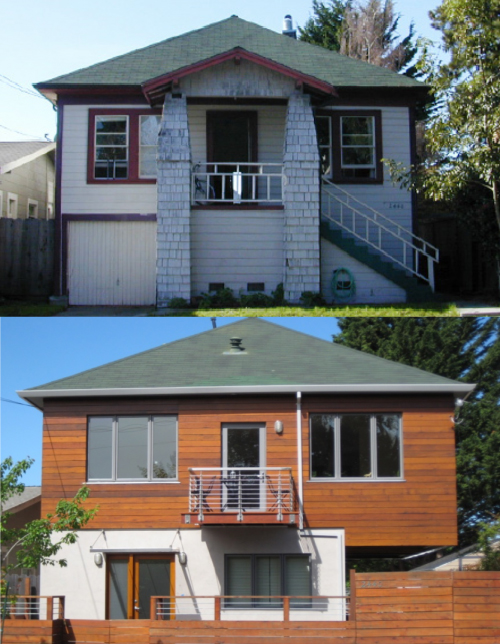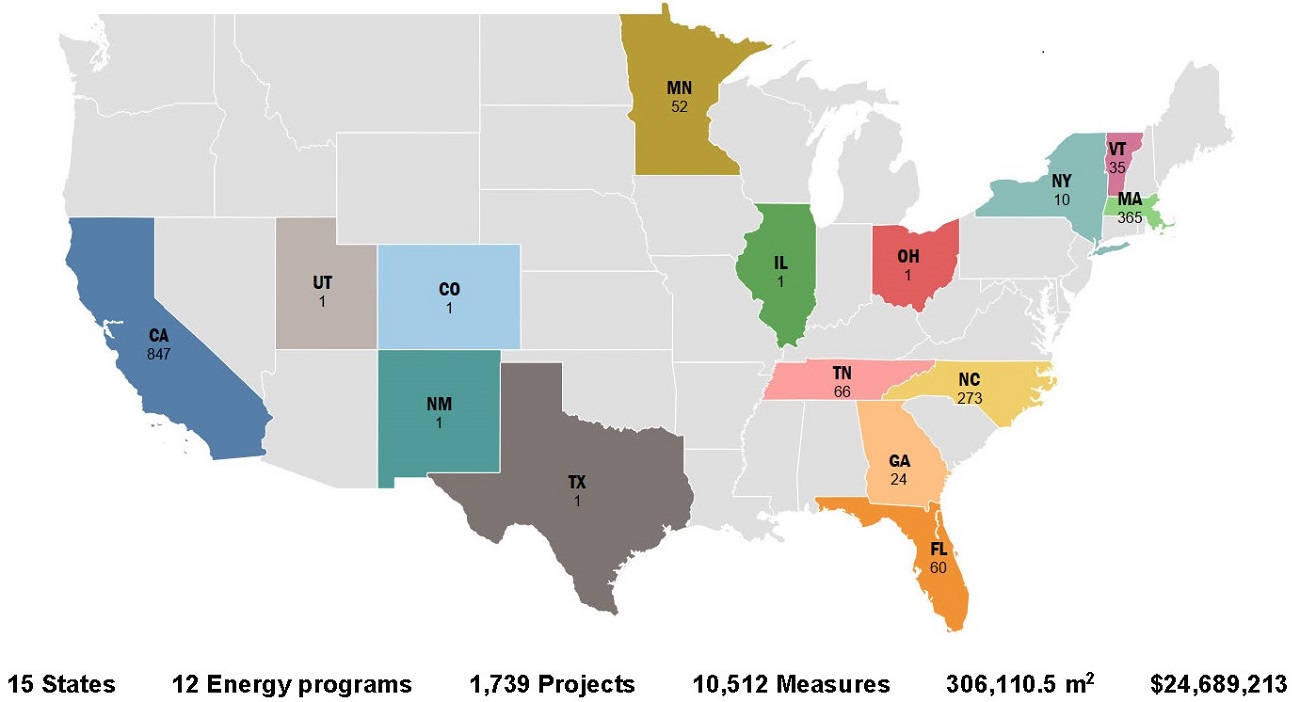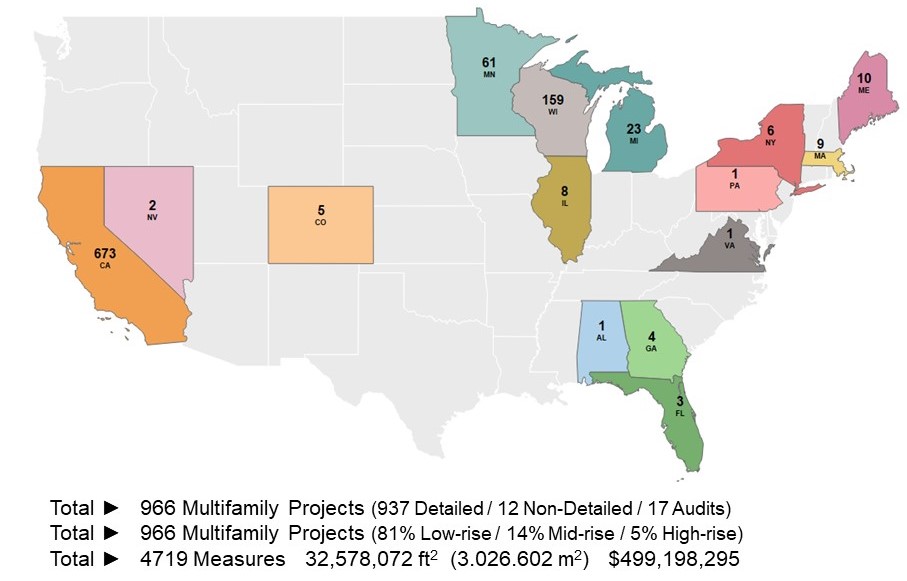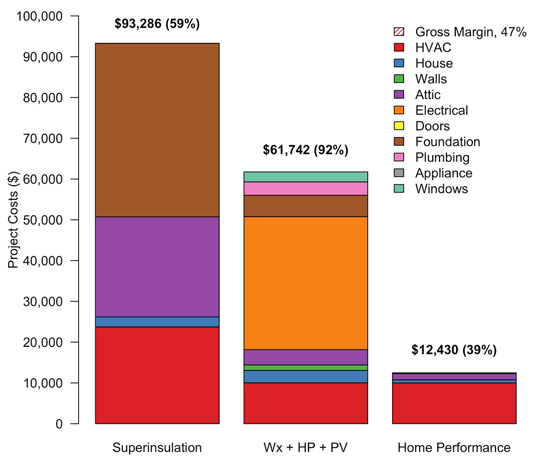DECARBONIZING HOMES
Decarbonizing Homes

Lawrence Berkeley National Lab (Berkeley Lab) has been gathering cost data and using industry surveys to figure out the best approaches for reducing carbon emissions from homes. We are developing standardized cost data collection and database management approaches for future program planning and management purposes. This work is studying financing, business practices, and program optimization, as well as investigating new technologies, such as low power heat pumps, thermal storage and smart electric panels. We are using machine-learning methods to develop archetypal retrofit packages that optimize carbon reductions and costs.
ROADMAP for Home Decarbonization
Decarbonizing the US housing stock is a complex and difficult undertaking. This report summarizes the challenges in getting to scale to decarbonize large numbers of existing homes. It identifies key opportunities for overcoming these challenges based on three key priorities:
- Develop solutions for all households
- Make home dearbonization affordable
- Support the US clean energy economy
This report provides targeted guidance and background information to help residential building decarbonization initiatives succeed and supports the US Department of Energy's Building Technology Office goal to achieve low/no carbon emission in existing homes by 2050.
DOCUMENT to download HERE
We have also prepared some simple Q&A's to supplement this report.
Deep Energy Retrofits for Homes

There is vast, untapped energy savings potential in existing U.S. homes. With support from the U.S. Department of Energy, Lawrence Berkeley National Laboratory (Berkeley Lab) is conducting a research study to better understand the costs and challenges associated with deep energy retrofit (DER) projects that aim to reduce energy use and carbon emissions by 50% or more. These projects can improve home comfort and occupant health, and upgrade our housing stock for the next hundred years.
Market adoption of deep energy retrofits (DER) has been limited. Major limiting factors include complex projects, high costs, perceived risks, extensive disruption, and unfamiliar work scopes to some contractors. In our work, we are looking at ways to address these barriers through industry surveys and gathering home performance data from large numbers of home energy upgrade projects. So far, we have a database of more than 1,700 homes.
Single Family Data Base

Multifamily Data Base

Seminar Series 2021 - DECARBONIZING HOMES
![]() As part of our climate goals it will be essential to decarbonize homes. This seminar series examines some of the challenges, barriers and solutions. The focus is on hands-on experiences from homeowners, architects and contractors that are working on home electrification and decarbonization. We will begin with a summary of recent Lawrence Berkeley National Laboratory work for DOE on pathways to large-scale home decarbonization, including cost analyses from over 1,700 projects as well as surveys of industry professionals. We will hear from our Lawrence Berkeley National Laboratory colleagues who have decarbonized their homes, or are in the process of doing so. Finally, local contractors, architects and consultants will share some of their hands-on knowledge and ideas.
As part of our climate goals it will be essential to decarbonize homes. This seminar series examines some of the challenges, barriers and solutions. The focus is on hands-on experiences from homeowners, architects and contractors that are working on home electrification and decarbonization. We will begin with a summary of recent Lawrence Berkeley National Laboratory work for DOE on pathways to large-scale home decarbonization, including cost analyses from over 1,700 projects as well as surveys of industry professionals. We will hear from our Lawrence Berkeley National Laboratory colleagues who have decarbonized their homes, or are in the process of doing so. Finally, local contractors, architects and consultants will share some of their hands-on knowledge and ideas.
See the link for information about the Seminar Series hosted by Berkeley Lab between Nov. 17th 2021 to January 5th 2022. All the slides and videos are available at the link.
The series was hosted by Iain Walker, leader of the Residential Building System Group.





